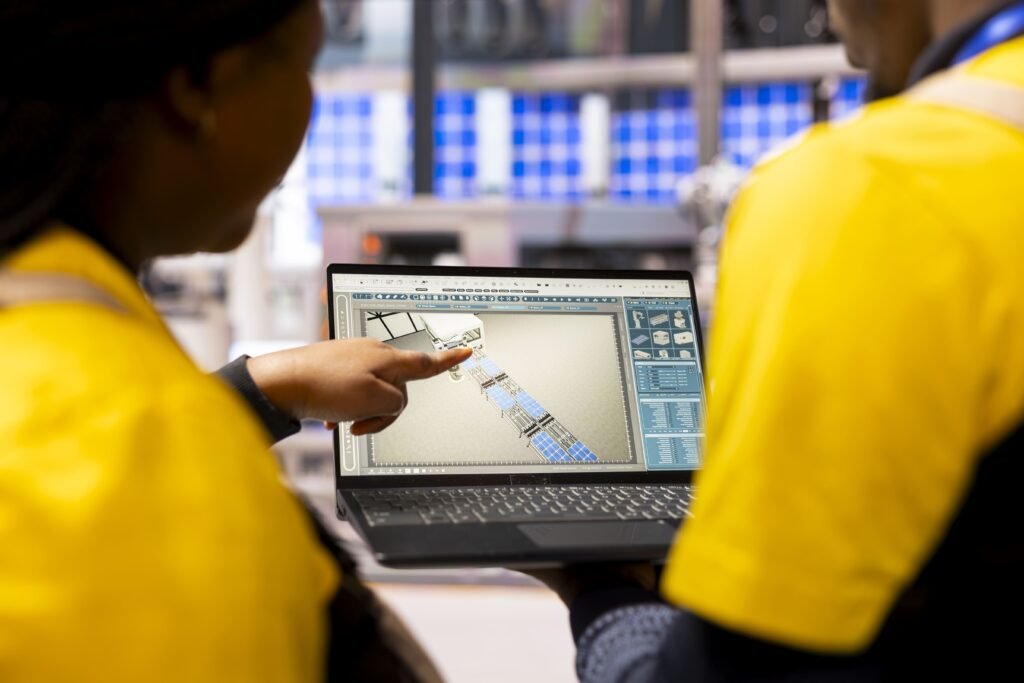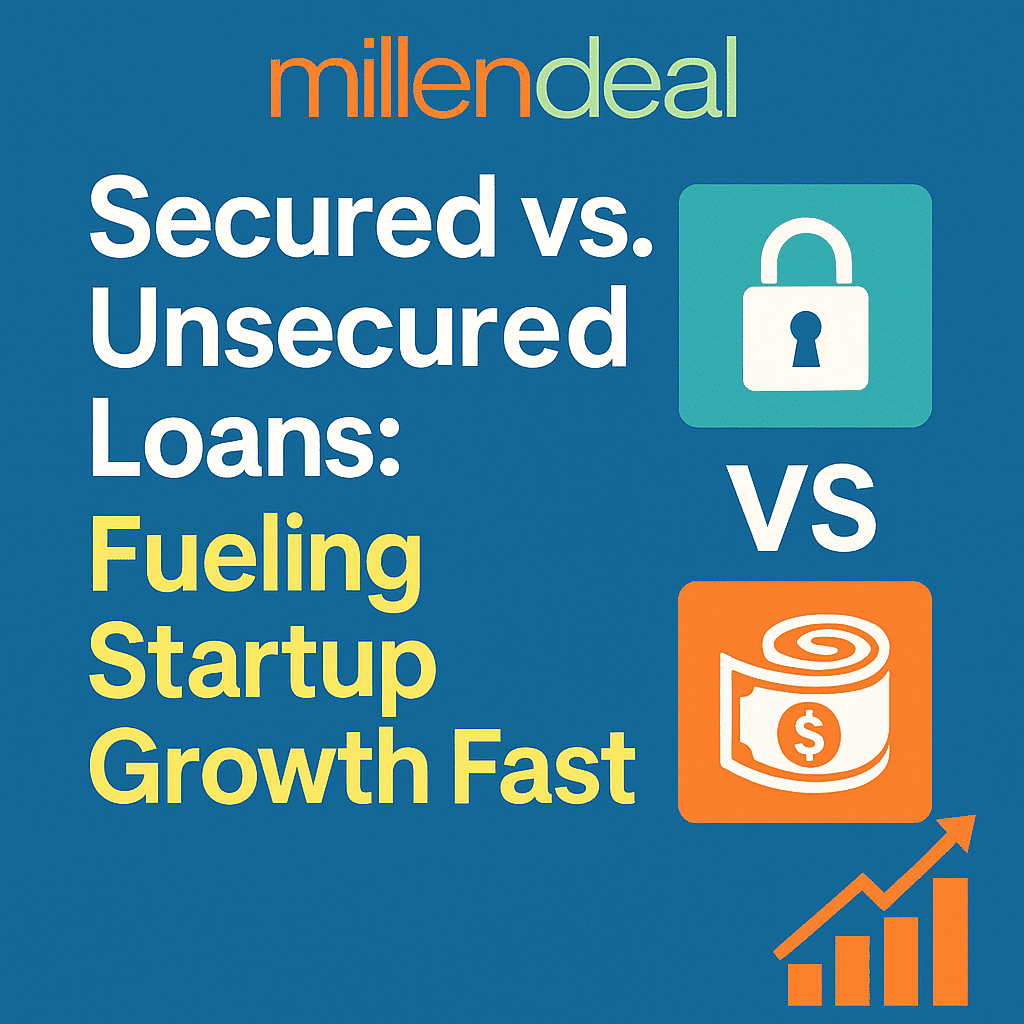Why This Question Matters More Than Ever
If you’re a startup founder or small business dreamer, you’ve probably asked this question before: “Should I go with a secured loan or an unsecured loan?” It’s a critical choice that could shape your cash flow, your risk, and your growth.
With so many business loans out there, the real challenge isn’t finding financing—it’s choosing the one that aligns with your goals. Startups, especially, need capital that works for them, not against them.
Before you jump into applications, let’s break down both loan types, compare their pros and cons, and help you figure out which one fuels startup growth faster.
Understanding the Basics: What Are Secured and Unsecured Loans?
A secured loan is backed by collateral. That means you pledge something valuable—like equipment, real estate, or inventory. If you default, the lender takes the asset.
On the flip side, an unsecured loan doesn’t require collateral. Approval is usually based on your credit score, business history, and cash flow. It’s riskier for lenders, so interest rates may be higher.
For startups, this difference matters. If you have valuable assets, a secured loan can offer better rates. But if you’re still building, unsecured loans might be your only door in.
Startup Scenarios: When Each Type Makes Sense
Let’s say your startup owns expensive machinery or a building. You can use that to get lower interest on a secured loan. It’s ideal when you need large sums or long terms.
Now imagine you’re in e‑commerce, and your value is in your brand and digital assets. An unsecured loan might be faster and more accessible.
🧩 Explore creative funding options in our blog: E‑Commerce Funding Reimagined: 6 Creative Capital Sources
Speed, Simplicity, and Approval Times
Time is everything when you’re running a startup. Unsecured loans often come with faster approvals, sometimes within 24–48 hours.
Secured loans take more time—lenders must verify the value of the collateral, which involves paperwork, appraisals, and negotiations. If your startup is in hypergrowth mode, the delay could cost you opportunities.
For more overlooked time-saving steps, check out: The Business Loan Checklist No One Talks About
Costs, Rates, and What You’ll Pay

Here’s where things get financial. Secured loans usually offer lower interest rates because the lender’s risk is reduced. That’s great if you’re borrowing big.
Unsecured loans come at a premium. Expect higher rates and possibly shorter repayment terms. But if speed and access matter more, the cost may be worth it.
Here’s a quick comparison:
Feature | Secured Loan | Unsecured Loan |
Requires Collateral | Yes | No |
Interest Rate | Lower | Higher |
Approval Time | Slower | Faster |
Ideal For | Asset-rich startups | Young or digital firms |
Loan Amount | Higher | Lower |
💡 Use a commercial mortgage calculator if you’re considering collateral-based real estate funding.
Flexibility and Repayment Terms
Some startups need a fixed repayment schedule. Others need room to breathe. Secured loans often offer longer terms, making them better for large projects or capital investments.
Unsecured loans can be shorter-term—good for bridging cash flow gaps, launching campaigns, or covering urgent needs. Make sure your loan fits your cash cycle.
If you’re unsure where to start, this blog may help: How to Choose the Right Loan
Risk: What Happens If You Default?
Here’s the harsh truth: if you default on a secured loan, your lender can seize your asset. That could mean losing a vehicle, a building, or vital machinery.
Unsecured loans don’t take your stuff—but they do affect your credit. You may face lawsuits, collection fees, and it might tank your ability to borrow in the future.
Always calculate risk. Use forecasting tools or speak with advisors. And know your limit.
The Role of Equipment Financing
Here’s a secret: best equipment financing options often blend the benefits of both secured and unsecured loans.
With equipment loans, the gear itself acts as collateral. This lets you access better rates without needing additional assets. It’s a popular choice for startups in manufacturing, food service, or healthcare.
🔧 Check out our favorite approach to financing gear in our in-depth guide.
And don’t miss: Mezzanine Financing in 2025 – another hybrid funding strategy that might work better than either loan type in certain growth stages.

Which One Truly Fuels Startup Growth Faster?
There’s no silver bullet—but here’s the truth: unsecured loans fuel speed, while secured loans fuel scale. Many fast-growth startups use unsecured funding to seize quick wins, then refinance with secured loans for stability.
The best strategy might be a combination. Start fast, grow strong. Just like your business.
💼 Need help comparing options? Our experts can walk you through it. Start here: Small Business Loans & Lending Made Easy
Smarter Lending Starts Here
The debate between secured and unsecured loans is really a question of timing, resources, and goals. Understand what your startup needs right now and what it might need tomorrow.
Don’t go it alone. Millendeal helps startups just like yours navigate this maze of small business loans and creative financing strategies. Whether it’s comparing tools, using a commercial mortgage calculator, or evaluating equipment financing, we’ve got your back.
Because the right loan isn’t just a transaction—it’s a growth decision.
FAQs
- Can I switch from unsecured to secured loans later?
Yes. Many startups use unsecured loans first, then refinance with secured loans once they have collateral. - Are unsecured loans safe?
They’re safe if you repay them on time. Just be mindful of higher interest and fees. - What’s the best loan type for buying expensive equipment?
Check out best equipment financing options where the equipment itself secures the loan. - What’s the fastest way to get loan approval?
Use a streamlined application with all documents ready. Consider unsecured options for faster approval. - Should I work with a loan broker?
It can help. Just make sure they’re transparent and aligned with your goals.




